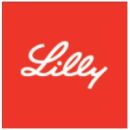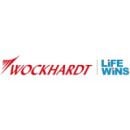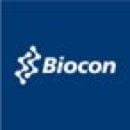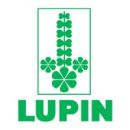One of the fastest-growing cities in India, Bengaluru is considered the Silicon Valley of India, and it’s become a natural home to a growing biotech scene. The city’s high density of research and development, IT infrastructure and software resources has made it a hotbed for these biotech companies, which are cultivating everything from aspirin to the latest cancer treatments.
Top Biotech Companies in Bengaluru
- Schrodinger
- Siemens Healthineers
- Lupin
- IQVIA
- Wockhardt
Top Biotech Companies in Bengaluru
German company Bayer provides biotechnology products, consumer healthcare products, pharmaceuticals, agricultural chemicals and seeds on a global scale. Its international presence spans Europe, Asia, Africa, Latin America, North America, the Middle East and India. Bayer is widely recognized for its aspirin product, which is still stamped with the “Bayer Cross” logo that it trademarked in 1904. Recently, Bayer announced the integration of artificial intelligence into the development of its agricultural products, healthcare research and over-the-counter products.
For the past 30 years, Schrödinger has developed a physics-based computational platform that helps scientists discover novel molecules used to create new drugs and other materials. According to its website, Schrödinger’s investment in research and development has powered its drug-discovery platform. Its Bengaluru site is one of two locations in India, the other of which is in Hyderabad.
With locations in over 70 countries, Siemens Healthineers is a biotech company focused on improving clinical decision-making and treatment pathways through robust research — backed by an annual research and development investment of over $1.6 billion, according to its website. For over 125 years, Siemens has aspired to cultivate patient-centered innovation. Some of its technological breakthroughs include the Pantix X-ray tube in 1933, the gamma camera in 1958, the world’s first ultrasound system in 1967, a proton therapy device in 2010 and AI-driven radiotherapy in 2020.
With locations in over 50 countries and patients in more than 140 countries, Alcon is a Swiss-American biotech and medical device company that specializes in vision-care products. Founded in Fort Worth, Texas in 1945, Alcon has expanded globally in an effort to increase worldwide access to eye care. In a 2023 impact report, Alcon committed to a goal of helping 5 million people with untreated cataracts in low- and middle-income countries, as well as providing 150,000 vision screenings to children in need within two years.
Since its inception in 1886, Johnson & Johnson has grown to a global biotech company of over 130,000 global employees. In 2016, Johnson & Johnson established global clinical operations in India, making its clinical trials accessible to its patients and expanding its workforce to locations in large cities like Bengaluru, Chennai and Mumbai. According to a 2023 report, the international company trained upwards of 40,000 operating room and hospital staff in resource-limited settings, reduced 23 percent of GHG emissions since 2021 and invested $15.1 billion in research and development across medicine and biotechnology.
Founded in Indianapolis, Indiana in 1876, Lilly opened locations in India in 1993. The pharmaceutical and biotech company opened a capability center in Bengaluru in 2016. Beyond mass producing insulin and the first polio vaccine in the 1990s, Lilly develops medication that treats growth-hormone deficiencies, gastric cancer, lung cancer, breast cancer, osteoporosis, rheumatoid arthritis and diabetes. It is also known for its clinical depression drugs Prozac and Cymbalta.
Parexel is an American biopharmaceutical company that provides clinical development services with a goal of increasing access and participation in clinical research. It conducts clinical trials on behalf of clients around the world. The company has over 8,000 team members in Asia, including at its Bengaluru location. Recently, Parexel has launched DEI initiatives as a means of making its workforce and trials more inclusive.
Sanofi develops, manufactures and markets medicines and other healthcare solutions. It is the world’s largest producer of vaccines through its subsidiary Sanofi Pasteur. Sanofi has had a presence in India since 1956, and it employs more than 100,000 people across 1,700 countries.
Backed by a global team, Thermo Fisher Scientific is a life science and clinical research company that strives “to make the world healthier, cleaner and safer.” Though it is headquartered in Waltham, Massachusetts, Thermo Fisher Scientific employees contribute to its life sciences research across hundreds of locations, including Bengaluru. The company supplies biotechnology, pharmaceutical, laboratory, clinical development and specialty diagnostics services.
PPD provides comprehensive drug development, laboratory and lifecycle services to organizations in the pharmaceutical and medical device industries, academic institutions and government entities. The company has conducted clinical trials in more than 100 countries. PPD is headquartered in North Carolina and maintains several locations across India.
American biotech company Baxter has multiple locations in India, including its manufacturing facility in Ahmedabad, global center of excellence in Gurgaon, and research and development and IT sites in Ahmedabad and Bengaluru. Baxter’s primarily produces technology used to treat chronic and acute medical conditions, specifically kidney disease. Its products include vaccines, regenerative medicine, recombinant and blood plasma proteins that treat hemophilia and similar bleeding disorders, plasma-based therapies to treat immune deficiencies, and treatments for end-stage kidney disease.
As one of the world's largest pharmaceutical companies, AstraZeneca produces a portfolio of technology and medicine for major conditions in the areas of inflammation, oncology, gastrointestinal, cardiovascular, neuroscience, respiratory and infection — including a Covid-19 vaccine. Originally founded in Sweden in 1913, AstraZeneca recently celebrated 45 years in India, where it has locations in Bengaluru, Delhi, Mumbai, Kolkata, Pune and Hyderabad.
Headquartered in Mumbai, Wockhardt is an Indian biotechnology and pharmaceutical company. Since its inception in 1967, Wockhardt has made multiple medical breakthroughs — it was the first company to bring betadine to India in the 1980s, it launched the first insulin delivery device in India in the early aughts and it partnered with the United Kingdom in 2020 to provide Covid-19 vaccines. Throughout its manufacturing plants in Europe, the United Kingdom, the United States and India, the company produces vaccines, pharmaceutical ingredients, nutrition products and vaccines.
GSK is a London-based pharmaceutical and biotech company that has been present in India for over 100 years. According to its website, GSK strives “to positively impact the health of 2.5 billion people by the end of the decade” within its four therapeutic areas — oncology, infectious disease, HIV and immunology. GSK developed the first malaria vaccine, which was prequalified by the World Health Organization in 2021. Its legacy products include zidovudine, amoxicillin, mercaptopurine and pyrimethamine.
Bengaluru-based Biocon is a biopharmaceutical company that manufactures novel biologics, biosimilar insulins and antibodies, which are sold as branded formulations. With over 1,000 patents to its name, Biocon’s products treat diabetes, cancer and autoimmune diseases in patients across 120 countries. According to its website, Biocon was the first Indian company to have a biosimilar product commercialized in the U.S and Japan.
Global biopharmaceutical research organization Syneos Health works in more than 110 countries to help pharmaceutical companies develop and market drugs and treatments. The company has been a part of the development of 92 percent of new drugs approved by the FDA in the last five years. Syneos Health is headquartered in North Carolina.
Employing more than 86,000 employees in over 100 countries, IQVIA is a multinational biotech company that conducts clinical research and creates health information technology. With a mission of reducing health inequities and improving global public health, IQVIA provides clinical research services, technology solutions and advanced analytics to the life sciences industry. The company recently launched IQVIA Connected Intelligence, which is designed to utilize data, analytics and artificial intelligence to unlock new healthcare innovations.
Viatris’ products include over-the-counter medicines as well as both branded and generic drugs. It has more than 1,400 approved therapeutic molecules in its portfolio and owns brands like Viagra, Xanax and Lipitor. Viatris operates an R&D center in Bangalore focusing on injectables.
The creator of Ozempic, Danish biotech company Novo Nordisk manufactures pharmaceutical products, specifically diabetes and growth hormone medications. Novo Nordisk commercialized the production of insulin in 1923. As the company expanded, it launched its presence in India in 1935, with its Bengaluru arm opening in 1992. Today, in addition to producing medication, Novo Nordisk partners with UNICEF in an effort to prevent childhood obesity.
Innovative medicine company Novartis makes drugs that reach more than 250 million people around the world every day. The company focuses on areas with high unmet patient needs like cardiovascular, immunological and metabolic conditions. Novartis employs 110,000 people around the world.
Lupin is a Mumbai-based pharmaceutical company that produces cardiovascular, asthma, anti-tuberculosis, antibiotics, diabetology and pediatric medications. Founded in 1968 by Dr. Desh Bandhu Gupta, Lupin began as a manufacturer of vitamins and drugs to combat tuberculosis, which was a pervasive and destructive disease in India at the time. Today, Lupin’s 20,000-member workforce spans six continents and delivers medication to over 100 countries.
With a site in Bengaluru, Icon is an Ireland-headquartered biotech and clinical research organization focused on drug development, including genomic medicines and immunotherapies. Since launching its Asia-Pacific arm in 1995, Icon has expanded to operate in over 11 countries, including India, where it fosters development projects and conducts clinical trials on a local, cross-region and global scale.






















